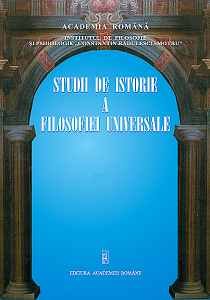The Philosophical Significance of Goethe’s Farbenlehre for Hegel
The Philosophical Significance of Goethe’s Farbenlehre for Hegel
Author(s): Anton KabeshkinSubject(s): Early Modern Philosophy, 19th Century Philosophy, Philosophy of Science, Phenomenology
Published by: Editura Academiei Române
Keywords: Hegel; natural philosophy; Goethe’s science; Theory of colors; Polarity;
Summary/Abstract: In this paper, I discuss Hegel’s reception of Goethe’s theory of colors and attempt to shed light on its philosophical significance for Hegel. I start with an overview of the central themes and concepts in Goethe’s theory, focusing in particular on primordial phenomena, polarity, intensification, complementarity of colors, and Goethe’s anti-reductionism. I then argue that it is especially the principle of polarity, as well as Goethe’s anti-reductionism about the domain of color phenomena, that were attractive for Hegel and played the most significant role in his discussion of Goethe’s theory. Finally, I argue that Hegel’s interest in polarity is connected with his view that this principle anticipates, in a sensuous and not fully adequate way, his own account of the concept as the fundamental structure of reality.
Journal: Studii de istorie a filosofiei universale
- Issue Year: XXXII/2024
- Issue No: 1
- Page Range: 69-79
- Page Count: 11
- Language: English

